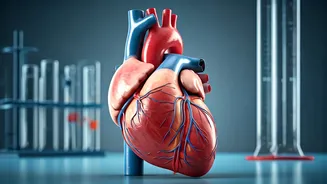Energy Drink Overview
Energy drinks are a popular choice for people looking to quickly boost their energy levels and focus, but they can be a double-edged sword. These beverages
typically contain a mix of ingredients such as caffeine, taurine, guarana, and various B vitamins, which work together to provide a short-term increase in alertness and stamina. However, the high levels of these stimulants can cause several side effects. The potential health impacts of energy drinks include cardiovascular problems, sleep disturbances, and heightened anxiety. Due to these concerns, medical professionals advise moderation in energy drink consumption and offer healthier alternatives for achieving the desired effects.
Heart Health Risks
One of the primary concerns associated with energy drinks is their potential impact on cardiovascular health. The high caffeine content in these drinks can significantly raise heart rate and blood pressure, placing undue stress on the heart. For individuals with existing heart conditions or sensitivities, this can lead to irregular heartbeats (arrhythmias), chest pain, or even more serious cardiac events. Furthermore, the combination of caffeine and other stimulants found in energy drinks can exacerbate these risks, making them particularly dangerous for those with underlying cardiovascular vulnerabilities. Experts recommend monitoring caffeine intake, especially from energy drinks, to mitigate any possible adverse effects on the heart.
Sleep Disruption Concerns
Energy drinks are notorious for disrupting sleep patterns due to their high caffeine content, which interferes with the body's natural sleep-wake cycle. When consumed close to bedtime, caffeine can block the effects of adenosine, a neurotransmitter that promotes sleepiness. This can lead to difficulty falling asleep, staying asleep, and experiencing restful sleep. Chronic sleep deprivation, linked to energy drink consumption, can lead to a host of health problems, including weakened immunity, mood disorders, and a higher risk of chronic diseases. For those looking to improve their sleep, it's wise to limit or avoid energy drinks, especially in the evening, and explore strategies that promote better sleep hygiene.
Alternative Energy Boosters
Many healthy and effective alternatives can offer energy and focus without the risks associated with energy drinks. These options focus on improving the body's natural energy production and cognitive function. Balanced diets rich in whole foods, like fruits, vegetables, and lean proteins, provide sustained energy throughout the day. Regular exercise has been shown to boost energy levels and improve sleep quality. Hydration is also a crucial aspect, as dehydration can lead to fatigue and reduced concentration. Additionally, incorporating mindful practices such as yoga or meditation, can effectively reduce stress, promote better sleep, and improve overall energy levels, offering a holistic approach to well-being.





















